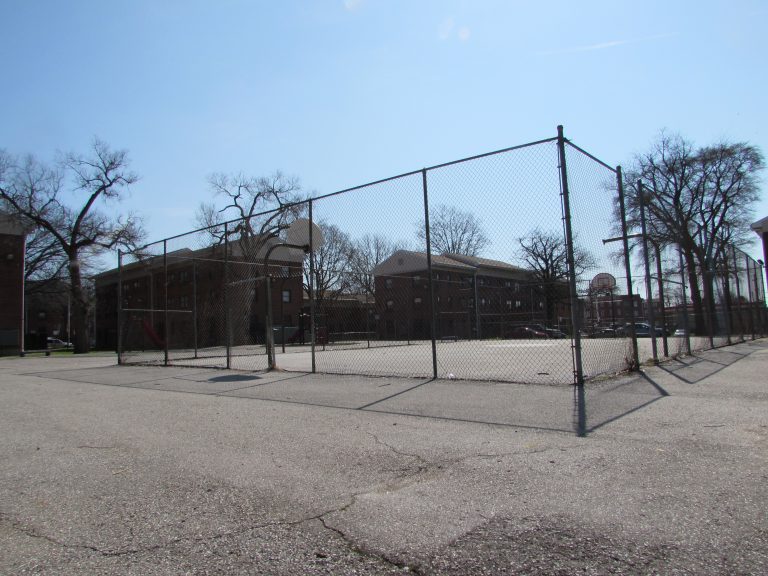By Shawn Massie
Beginning Nov. 30, Baltimore’s public housing residents will no longer be able to pay their rent by mail—and many of them are not happy about it.
Instead of obtaining a money order or check and mailing it to a lockbox operated by the Housing Authority of Baltimore City (HABC), via a prepaid postage envelope provided by HABC, residents will have to either pay their rent electronically (whether online, by phone, direct debit, or via text) or through Global Express, a financial services company with whom the housing authority partnered in 2015 to accept rent payments, according to a letter sent to public housing residents last August.
The newer electronic payment methods were a product of discussions between the housing authority and its residents about the efficiency of the former mail-in method, according to Tania Baker, director of communications for HABC.
“One concern that residents expressed to HABC was that their rent payments were not being posted in a timely manner due to mail delays,” explained Baker via email. “When residents met with HABC during a series of community meetings, they encouraged the agency to provide rent payment options that would offer a receipt at the time of payment; that would provide residents with a choice of payment methods; and that would decrease the time in which payments were being posted to resident accounts, none of which could be addressed with using the single lockbox method.”
But some residents have expressed worry that the new system will fail to make their lives easier—since many do not enjoy easy internet access—while also making the process of paying one’s rent less private and secure.
“I’m not comfortable with the new system,” said Gilmor Homes resident Janette Carpenter-Hill, who feels that her closest Global Express office is teeming with prying eyes.
“I don’t like to open my wallet up [when] there are a lot of people around,” she added.
Other public housing residents, however, view the new system as a safer alternative than traditional payment methods.
“It’s better than mailing it (rent) and have the office tell you that it didn’t come.” said Kelly Keys, a resident of Gilmor Homes.
In addition to mailing rent payments via a prepaid envelope, the previous system also allowed residents to make an in-person visit to the housing authority’s Fayette Street office. Because a large number of public housing residents are seniors, adopting a new system may prove a significant inconvenience.
“Just because I have internet, doesn’t mean I know how to use it.” said one resident from a public housing facility in west Baltimore, who preferred her name not be published. “I don’t trust internet payments.”
On the other hand, James Hill, McCulloh Homes Resident Council president, is optimistic about the Global Express partnership with the city. “This is the best thing that could happen,” said Hill. “It keeps people up with the times.”
New System an Attempt to Address Digital Divide
The new payment policy reflects an Obama administration effort to close what many experts see as a digital divide between those who enjoy regular access to internet technologies and those who do not. In 2015, U.S. Department of Housing and Urban Development (HUD) Secretary Julian Castro advanced a proposal to help close this divide by providing affordable broadband access to families living in HUD-assisted housing, across 27 cities.
The initiative, called ConnectHome, looks to “provide more Americans with the same high-speed access to knowledge and opportunity that millions of people already enjoy,” said Castro when he unveiled the proposal.
In February, a Missouri public housing development was the first to be connected to ultra high speed internet through the ConnectHome initiative. With help from Google Fiber, a broadband network capable of providing gigabit speeds, individual units are able to sign up for free internet service (note: average American broadband speed was only 15.3 megabits per second in the second quarter of 2016, according to Akamai Technologies).
Since then, major internet providers such as AT&T, Comcast, and Cox Communication have joined the ConnectHome campaign.
Back at McCulloh Homes, Hill is working to ensure internet access is available to all residents. Hill says he has proposed an agreement with HABC to establish a computer lab, not only to accommodate the rent payments, but for training and internet access.
Past Cyber-Theft Casting Pall over Idea of Online Payments for Some Residents
Although Keys says she does not mind the new payment system per se, she is adamant about not making online payments, preferring what she considers to be more secure, face-to-face payments at a Global Express location (of which there are over 89 in Baltimore City, according to the Global Express website).
Concerns over identity theft from cyber attacks were among the main reasons expressed by current public housing residents for their distrust of the new system. It is a concern informed, in part, by Maryland’s own recent history of cyber theft.
The Baltimore Sun reported that, in 2014, hackers stole personal information—including home addresses, Social Security data, and credit card information—from an estimated 26,000 Maryland residents.
For many Baltimore public housing residents, there is little reason to presume their own internet transactions will prove anymore secure.
“I have internet at my house. ” said Carpenter-Hill. “But I would not pay my rent on it.”
This story was originally published by OnBckgrnd.com, on Nov. 2, 2016.

